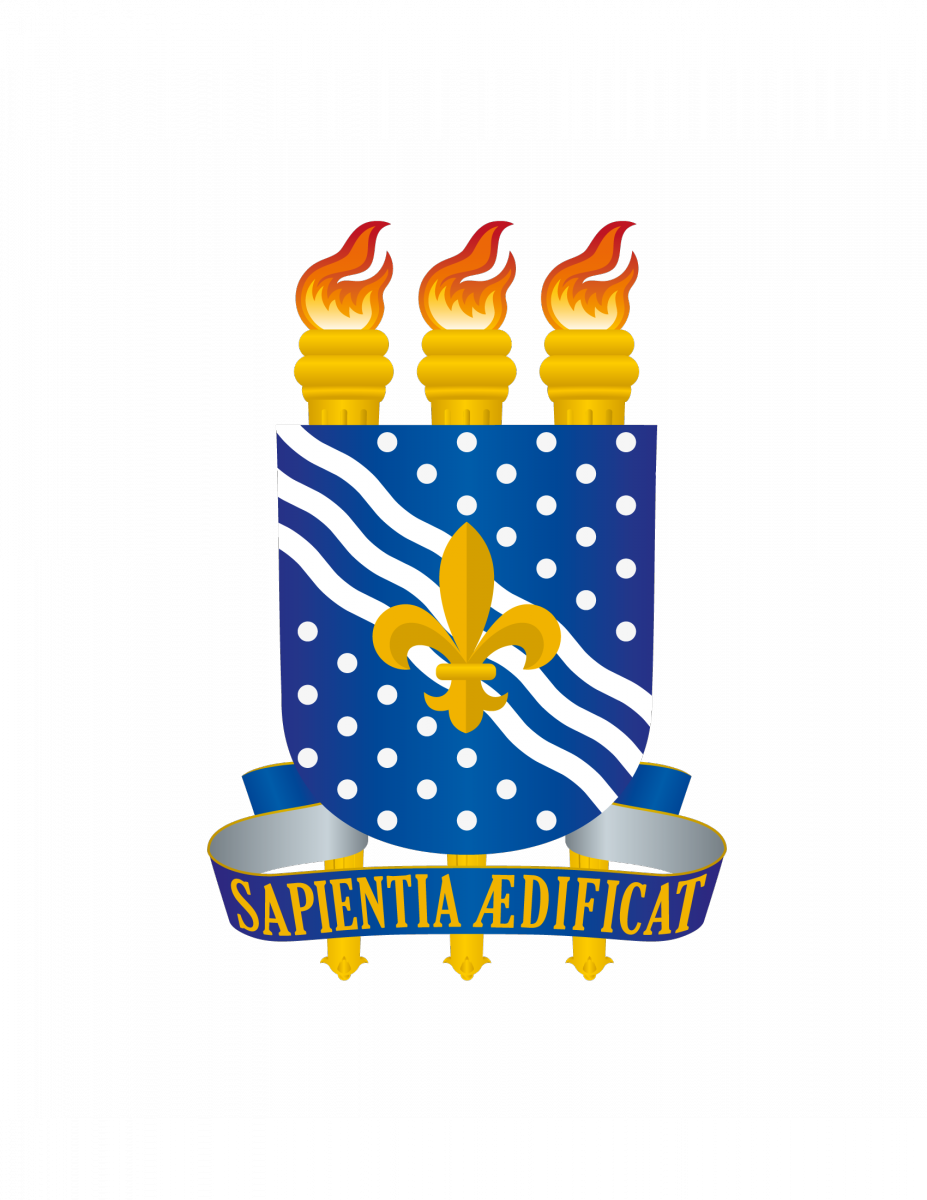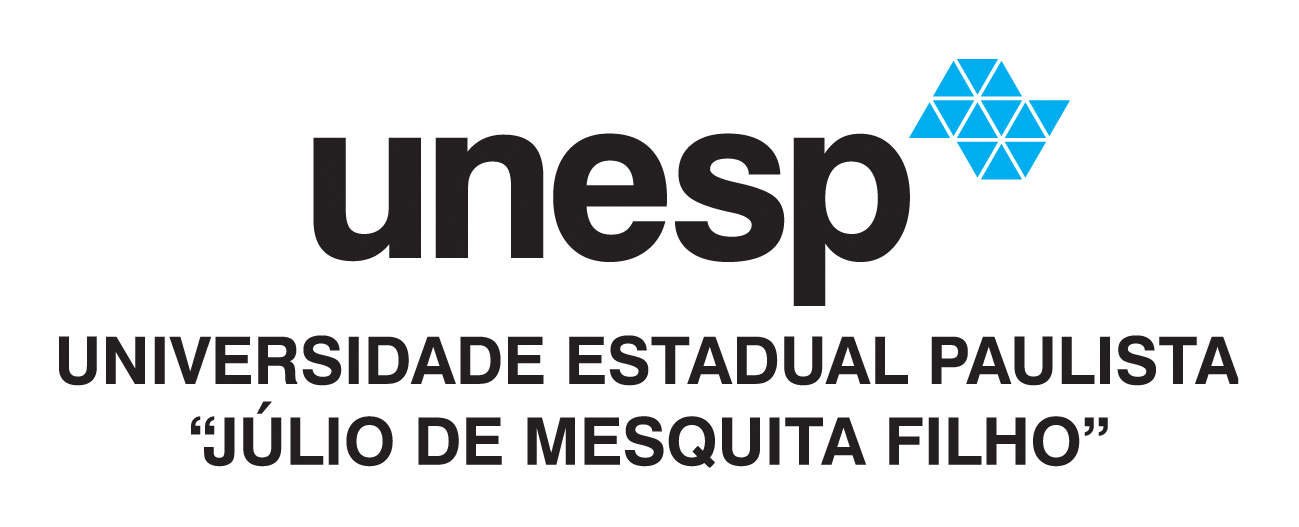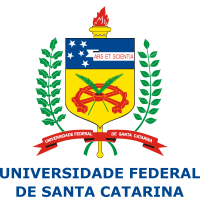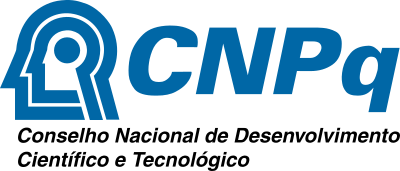Information, Data and Technology
Guilherme Ataíde Dias
Federal University of Paraíba (UFPB) | guilhermeataide@ccsa.ufpb.br | https://orcid.org/0000-0001-6576-0017 | https://lattes.cnpq.br/9553707435669429
Undergraduate in Computer Science from the Federal University of Paraíba UFPB Campus II (1990), Bachelor in Law by the University Center of João Pessoa UNIPE (2010), Master in Organization & Management by Central Connecticut State University? CCSU (1995), PhD in Information Science (Communication Sciences) at the University of São Paulo? USP (2003) and Post-Doctor by UNESP (2011). He is currently Associate Professor III at the Federal University of Paraíba, where he holds a degree in Information Science. He is involved with Post-Graduation through the Post-Graduate Program in Information Science and Postgraduate Program in Administration, both of UFPB. Has research interest in the following themes: Knowledge Representation; Information Architecture; Information security; Information and Communication Technologies; Health Information; Social networks; Free software; Law, Ethics and Intellectual Property in Cyberspace; Scientific Data Management; Legal Information; He is currently Research Productivity Scholar (PQ) at CNPq.
Moisés Lima Dutra
Federal University of Santa Catarina (UFSC) | moises.dutra@ufsc.br | https://orcid.org/0000-0003-1000-5553 | https://lattes.cnpq.br/1973469817655034
Professor, Federal University of Santa Catarina, Department of Information Science. PhD in Computing from the University of Lyon 1, France (2009). Master in Electrical Engineering, subarea Automação e Sistemas (2005) and Bachelor in Computing (1998) from the Federal University of Santa Catarina. His current lines of research are related to Applied Artificial Intelligence (Machine Learning, Deep Learning, Semantic Web, Linked Data) and Data Science (Big Data, IoT). It is linked to the research group ITI-RG (Intelligence, Technology and Information - Research Group).
Fábio Mosso Moreira
São Paulo State University (UNESP) | fabio.moreira@unesp.br | https://orcid.org/0000-0002-9582-4218 | https://lattes.cnpq.br/1614493890723021
Undergraduate degree in Business Administration from the Faculty of Sciences and Engineering (UNESP / Tupã). Master degree in Information Science - (UNESP / Marília). PhD student in the Graduate Program in Information Science (UNESP / Marília). Member of the Research Group - GPNTI (UNESP / Marília) and GPTAD (UNESP / Tupã). Collaborator of the Project Digital Skills for Family Farming (CoDAF). Content editor of the Electronic Journal Digital Skills for Family Farming (RECoDAF). Professional Technical Skill in Informatics from ETEC Massuyuki Kawano - Centro Paula Souza de Tupã. Professional experience in the ERP Information Systems for Logistics Operations. Works with research in Information Science, studying the use of digital resources for access to government data of Public Policies in the context of the small farmer.
Fernando de Assis Rodrigues
Federal University of Pará (UFPA) | fernando@rodrigues.pro.br | https://orcid.org/0000-0001-9634-1202 | https://lattes.cnpq.br/5556499513805582
Professor at Federal University of Pará. Ph.D. and M.S. in Information Science, Post-bachelor in Internet Systems and Bachelor of Science in Information Systems. Most of his experience is based on works developed as a Full Stack Developer and Database administrator, especially with Python, Java and PHP programming languages, as well as MySQL, MariaDB, SQLite3 and PostgreSQL databases. Also, he lectured classes related to the context of Computer Science to undergraduate and graduate students at UNESP. Currently, He workd as a postdoc researcher at UNESP labs, working in data studies.
Ricardo César Gonçalves Sant'Ana
São Paulo State University (UNESP) | ricardo.santana@unesp.br | https://orcid.org/0000-0003-1387-4519 | https://lattes.cnpq.br/1022660730972320
Associate Professor at the Paulista State University - UNESP, Faculty of Sciences and Engineering - FCE, Campus de Tupã, on an exclusive dedication, where he is Chairman of the Monitoring and Evaluation Committee of the Graduate Courses - CAACG, Local Coordinator of the Center for Studies and Pedagogical Practices - CENEPP and Local Ombudsman. Professor of the Post-Graduate Program in Information Science of the Paulista State University, Marília Campus. Graduated in Mathematics and Pedagogy, Master in Information Science (2002), Doctorate in Information Science (2008) and Freelance in Management Information Systems by UNESP (2017). He has specialized in Object Orientation (1996) and Management of Information Systems (1998). Ad hoc advisor of periodicals and development agencies. Member of the Research Group - New Technologies in Information GPNTI-UNESP. Has experience in the area of ??Computer Science, currently conducts research focused on: information science and information technology, investigating issues related to the Data Life Cycle, Transparency and Information Flow in Productive Chains. He worked as a professor at Faccat Faculdade de Ciências Contábeis e Administração de Tupã, where he coordinated a course of Administration with Qualification in Systems Analysis for ten years and the course of Licenciatura in Computing. He worked in the private sector as a consultant, integrator and researcher of new information technologies from 1988 to 2004.
Organizators
Guilherme Ataíde Dias
Federal University of Paraíba (UFPB) | guilhermeataide@ccsa.ufpb.br | https://orcid.org/0000-0001-6576-0017 | https://lattes.cnpq.br/9553707435669429
Undergraduate in Computer Science from the Federal University of Paraíba UFPB Campus II (1990), Bachelor in Law by the University Center of João Pessoa UNIPE (2010), Master in Organization & Management by Central Connecticut State University? CCSU (1995), PhD in Information Science (Communication Sciences) at the University of São Paulo? USP (2003) and Post-Doctor by UNESP (2011). He is currently Associate Professor III at the Federal University of Paraíba, where he holds a degree in Information Science. He is involved with Post-Graduation through the Post-Graduate Program in Information Science and Postgraduate Program in Administration, both of UFPB. Has research interest in the following themes: Knowledge Representation; Information Architecture; Information security; Information and Communication Technologies; Health Information; Social networks; Free software; Law, Ethics and Intellectual Property in Cyberspace; Scientific Data Management; Legal Information; He is currently Research Productivity Scholar (PQ) at CNPq.
Moisés Lima Dutra
Federal University of Santa Catarina (UFSC) | moises.dutra@ufsc.br | https://orcid.org/0000-0003-1000-5553 | https://lattes.cnpq.br/1973469817655034
Professor, Federal University of Santa Catarina, Department of Information Science. PhD in Computing from the University of Lyon 1, France (2009). Master in Electrical Engineering, subarea Automação e Sistemas (2005) and Bachelor in Computing (1998) from the Federal University of Santa Catarina. His current lines of research are related to Applied Artificial Intelligence (Machine Learning, Deep Learning, Semantic Web, Linked Data) and Data Science (Big Data, IoT). It is linked to the research group ITI-RG (Intelligence, Technology and Information - Research Group).
Fábio Mosso Moreira
São Paulo State University (UNESP) | fabio.moreira@unesp.br | https://orcid.org/0000-0002-9582-4218 | https://lattes.cnpq.br/1614493890723021
Undergraduate degree in Business Administration from the Faculty of Sciences and Engineering (UNESP / Tupã). Master degree in Information Science - (UNESP / Marília). PhD student in the Graduate Program in Information Science (UNESP / Marília). Member of the Research Group - GPNTI (UNESP / Marília) and GPTAD (UNESP / Tupã). Collaborator of the Project Digital Skills for Family Farming (CoDAF). Content editor of the Electronic Journal Digital Skills for Family Farming (RECoDAF). Professional Technical Skill in Informatics from ETEC Massuyuki Kawano - Centro Paula Souza de Tupã. Professional experience in the ERP Information Systems for Logistics Operations. Works with research in Information Science, studying the use of digital resources for access to government data of Public Policies in the context of the small farmer.
Fernando de Assis Rodrigues
Federal University of Pará (UFPA) | fernando@rodrigues.pro.br | https://orcid.org/0000-0001-9634-1202 | https://lattes.cnpq.br/5556499513805582
Professor at Federal University of Pará. Ph.D. and M.S. in Information Science, Post-bachelor in Internet Systems and Bachelor of Science in Information Systems. Most of his experience is based on works developed as a Full Stack Developer and Database administrator, especially with Python, Java and PHP programming languages, as well as MySQL, MariaDB, SQLite3 and PostgreSQL databases. Also, he lectured classes related to the context of Computer Science to undergraduate and graduate students at UNESP. Currently, He workd as a postdoc researcher at UNESP labs, working in data studies.
Ricardo César Gonçalves Sant'Ana
São Paulo State University (UNESP) | ricardo.santana@unesp.br | https://orcid.org/0000-0003-1387-4519 | https://lattes.cnpq.br/1022660730972320
Associate Professor at the Paulista State University - UNESP, Faculty of Sciences and Engineering - FCE, Campus de Tupã, on an exclusive dedication, where he is Chairman of the Monitoring and Evaluation Committee of the Graduate Courses - CAACG, Local Coordinator of the Center for Studies and Pedagogical Practices - CENEPP and Local Ombudsman. Professor of the Post-Graduate Program in Information Science of the Paulista State University, Marília Campus. Graduated in Mathematics and Pedagogy, Master in Information Science (2002), Doctorate in Information Science (2008) and Freelance in Management Information Systems by UNESP (2017). He has specialized in Object Orientation (1996) and Management of Information Systems (1998). Ad hoc advisor of periodicals and development agencies. Member of the Research Group - New Technologies in Information GPNTI-UNESP. Has experience in the area of ??Computer Science, currently conducts research focused on: information science and information technology, investigating issues related to the Data Life Cycle, Transparency and Information Flow in Productive Chains. He worked as a professor at Faccat Faculdade de Ciências Contábeis e Administração de Tupã, where he coordinated a course of Administration with Qualification in Systems Analysis for ten years and the course of Licenciatura in Computing. He worked in the private sector as a consultant, integrator and researcher of new information technologies from 1988 to 2004.
Featured entity identification to improve the Link Analysis
Pages: 363 - 380
Authors
Roberto Zaina
Federal University of Santa Catarina (UFSC) | rzaina@gmail.com | https://orcid.org/0000-0002-1887-5951 | https://lattes.cnpq.br/2044312005144633
Graduation in Law from Pontifical Catholic University of Paraná (2003) and Specialist in Business Intelligence from Universidade Positivo (2017). He has been a Brazilian Army Officer from 2001 to 2007. He has been a Federal Police Officer since 2007. He has professional experience in the areas of Criminal Law, Criminal Procedure, Information Technology and Data Analysis. He teaches courses at the National Police Academy (Federal Police), the National Secretariat of Public Security and the Department of Asset Recovery and International Legal Cooperation.
Vinicius Faria Culmant Ramos
Federal University of Santa Catarina (UFSC) | v.ramos@ufsc.br | https://orcid.org/0000-0002-8319-743X | https://lattes.cnpq.br/0442142220296336
Professor of the Federal University of Santa Catarina (UFSC) Araranguá campus. He holds a Bachelor's degree in Computer Science from UFRJ, a Master's Degree in Systems and Computer Engineering from COPPE / UFRJ and a Doctorate in Systems and Computer Engineering with a co-tutelary agreement between COPPE / UFRJ and the Eindhoven University of Technology (HOL) . Currently, he works with research and development of methodologies and technological tools for the treatment and analysis of large amounts of data (Big Data) in social networks. His researches are also focused on the teaching of computer programming and the development of constructivist learning environments in presence and distance with the use of new digital technologies of information and communication. It mainly works in the following subjects: educational technology, distance education, new Web technologies, adaptive systems, evaluation of adaptive systems, programming and treatment teaching and big data analysis.
Gustavo Medeiros de Araujo
Federal University of Santa Catarina (UFSC) | gustavo.araujo@ufsc.br | https://orcid.org/0000-0003-0572-6997 | https://lattes.cnpq.br/2609254559240670
PhD in Automation and Systems Engineering at UFSC (2013) and Master in Computer Science at UFSC (2007). He has experience in Computer Science and Automation, with emphasis on Data Science, Machine and Deep Learning and Cyber-Physical System. It has two lines of research: i) Applications with Data Science, Machine and Deep Learning and ii) Wireless Sensor Networks (WSNs) and MANTEs protocols. In addition to his academic background, he has experience in the software industry by developing information systems for the federal government and systems for the automation industry. He is currently associate professor A2 at the Federal University of Santa Catarina, member of the Laboratory of Software and Hardware Integration (LISHA) and member of the Laboratory of Engineering and Data Science (LECID).
Resumo
A proposta do presente estudo é a de desenvolver um método para a identificação automática de elementos relevantes em Relatórios de Inteligência Financeira. Então, inicialmente, explicamos a adoção de uma métrica específica para indicar suspeitas de lavagem de dinheiro, que é o uso de interpostas pessoas, comumente conhecidas como “laranjas”. Uma forma de se identificar tais pessoas é verificar coincidências de pessoas como empregadas e sócias de empresas que operaram entre si. Detalhamos a metodologia adotada, que se iniciou com a tabulação das operações financeiras do Relatório de Inteligência Financeira e depois com a coleta dos dados relativos aos quadros societários das empresas e dos vínculos empregatícios dos sócios. Posteriormente, foi explicado o desenvolvimento de um script de extração, tratamento e carga dos dados em um programa de Business Intelligence, que trouxe como resultado uma tabela com as prováveis interpostas pessoas. Esta tabela, juntamente com os demais dados, foi importada para um programa de análise de vínculos, que permite visualizar os dados por meio de grafos. O resultado final foi um grafo que destaca as pessoas suspeitas de serem “laranjas” e, desta forma, facilita a análise do investigador.
Palavras-chave: Lavagem de Dinheiro. Interpostas Pessoas. Grafos.
Abstract
The purpose of the present study is to develop a method for the automatic identification of relevant elements in Financial Intelligence Reports. So we initially explained the adoption of a specific metric to indicate suspicions of money laundering, which is the use of interposed people, commonly known as "oranges". One way to identify such people is to verify coincidences of people as employees and members of companies that operated among themselves. We detail the methodology adopted, which began with the tabulation of the financial operations of the Financial Intelligence Report and then with the collection of the data related to the companies' corporate staff and the employment relationships of the members. Subsequently, we explained the development of a script extracting, processing and loading the data into a Business Intelligence program, which resulted in a table with the likely interposed people. This table, along with the other data, was imported into a link analysis program, which allows visualizing the data through graphs. The final result was a graph highlighting the people suspected of being "oranges" and, thus, facilitates the researcher's analysis.
Keywords: Money laundry. Interposed People. Graphs.




